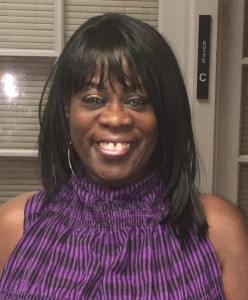
Lou Coleman
By Lou Coleman
Now that’s what being stuck on stupid sounds like …..Ah, Ah, Ah…. Listen, if you find yourself doing something stupid, Just Stop! My mother use to tell me, “The first thing you need to do when you find you’re digging yourself into a hole is to quit digging.” You’re already in a hole. Don’t make matters worse by digging deeper. I tell you lying is perilous than it seems. It’s more Satan-like than Christ-like. And Jesus referred to Satan as “a liar and the father of lies” [John 8:44]. So as the actress said on the movie “Friday” “You ain’t got to lie Craig; you ain’t got to lie!”
I tell you lying have become so prevalent, that many Christians do not look on lying as the grievous sin that it is. We have come to the point where we don’t expect to hear the truth. Spouses lie to one another in the name of keeping the peace, parents lie to their own children and vice versa, employers and employees lie to each other. Politicians lie in order to spin things their way and gain votes. Advertisers lie to sell products. Careful! [Rev 21:8] says, “But the cowardly, the unbelieving, the vile, the murderers, the sexually immoral, those who practice magic arts, the idolaters and all liars—they will be consigned to the fiery lake of burning sulfur. This is the second death.” Do you see how serious lying is? Breaking the 9th commandment has the consequence of eternal death! When you lie you align yourself with everything that brings death, destruction, doom, and damnation to this world. Sin is what leads to death, but that sin was brought about by a lie! Therefore, don’t take lying lightly. There’s no such thing as a little white lie. God is Truth, and anything less than truth is wrong, it is a lie, and it is sin!
So how does one overcome lying? Love the truth. When Jesus stood before Pilot, Pilot asked, “What is truth?” Truth was standing in front of Him. Jesus is the Way, the Truth, and the Life. We need to love Truth and Jesus more than ourselves. The truth needs to be more important than our own life. [Philippians 4:8] say, “Finally, brothers, whatever is true, whatever is noble, whatever is right, whatever is pure, whatever is lovely, whatever is admirable – if anything is excellent or praiseworthy – think about such things.” Saturate your mind with good things, like the Word of God. It’s how Jesus defeated Satan in the wilderness, with the Scriptures! Live the truth. Be accountable to others. Immediate confess, immediately correct, and immediately commit yourself again to truth. And never forget what God thinks about lying and what He will do with all liars [Psalms 26:45; 1 Corinthians 15:33].
Now if you are guilty of lying, the Holy Spirit is lovingly urging you to confess your sin, and repent by telling the truth, so God can forgive your sin and purify your heart. Do whatever the Spirit is telling you to do. And if you have never given your life to Jesus by confessing Him as Lord and Savior and dying to self through baptism, I invite you now to receive a new life born of the Holy Spirit. “Then you will know the truth, and the truth will set you.” [John 8:32]
“This day I call the heavens and the earth as witnesses against you that I have set before you life and death, blessings and curses. Now choose life, so that you and your children may live” [Deuteronomy 30:19].
 Westside Story Newspaper – Online The News of The Empire – Sharing the Quest for Excellence
Westside Story Newspaper – Online The News of The Empire – Sharing the Quest for Excellence


